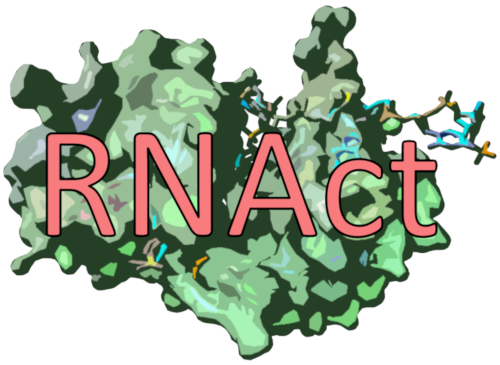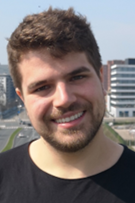
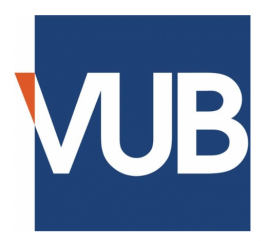
Jose Gavaldá-García
Early-stage researcher, Project 1
Jose studied his Bachelor in Biotechnology at the Universitat Politècnica de València (Spain). Later, moved to the Netherlands to study his MSc in Biomolecular Sciences and MSc in Bioinformatics and Systems Biology at the Vrije Universiteit Amsterdam. During his career, he has become interested in the structural properties of proteins and their effect on protein functions and applications. His expertise lies in protein biophysics, data science and machine learning. Jose has also been part of the teaching team of the Centre for Integrative Bioinformatics (VU Amsterdam) and enjoys exploring innovative ways to communicate his research.
Jose aims to improve the understanding of RRM proteins with a more flexible and dynamic picture of them. He will integrate NMR data of RRM proteins into predictive models to offer a properties-enriched representation of the protein. His ultimate goal for the RNAct project is to understand RNA recognition motifs in sufficient detail to design tailored proteins which bind to an RNA sequence of choice.
Project: Predicting biophysical characteristics of proteins from their amino acid sequence
Supervisor: Prof. Dr. Wim Vranken
Email: jose.gavalda.garcia@vub.be


Joel Roca Martínez
Early-stage researcher, Project 2
Joel Roca was born in Mequinenza in 1995, a very small village northeast of Spain. He studied Biochemistry and Biotechnology at the University Rovira i Virgili (URV; Tarragona, Spain) and quickly found out that bioinformatics was his preferred field. He collaborated for almost two years with the Cheminformatics and Nutrition Research Group at the URV, learning about drug discovery using virtual screening methods. Then he moved to Barcelona to study an MSc in Bioinformatics at the Autonomous University of Barcelona (UAB) and developed his master thesis in The Chemogenomics Research Group (University of Strasbourg; France) working with molecular dynamic simulations. Then he came back to Spain and started working as bioinformatician in ProtoQSAR, a cheminformatics company in Valencia. There, he developed an application to perform fast property predictions over chemical structures, based on QSAR modeling and using machine learning tools.
Project: Improving the in-silico structure representation of proteins
Supervisor: Prof. Dr. Wim Vranken
Email: joel.roca.martinez@vub.be
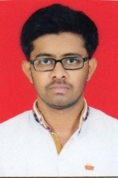
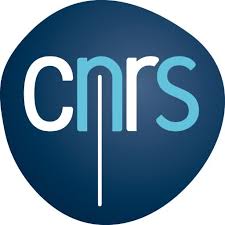
Hrishikesh Dhondge
Early-stage researcher, Project 3
Hrishikesh obtained a B.Sc. degree in Bioinformatics at MGM’s College of Computer Science & Information Technology (affiliated to Swami Ramanand Teerth Marathwada University; Nanded, India). It was during this period that he learnt the basics and developed an interest in programming.
He later on obtained a M.Sc. degree in Bioinformatics at Pondicherry University. During his Master’s, he did a summer internship at Bose institute (Kolkata, India), where he worked on next-generation sequencing (NGS) data analysis and machine learning. His Master’s thesis focused on DNA-based data storage systems, having developed a system with a storage density of 1 byte per two nucleotide base pairs without any compression, and based on hexadecimal data instead of binary data.
Hrishikesh’s main research interests are machine learning, structural biology and NGS data analysis.
Project: Collecting, integrating and analysing data on RNA recognition motifs (RRMs)
Supervisors: Dr. Isaure Chauvot de Beauchêne and Dr. Marie-Dominique Devignes
Email: hrishikesh.dhondge@loria.fr
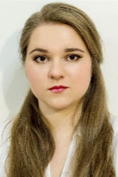

Anna Kravchenko
Early-stage researcher, Project 4
Anna Kravchenko is a Ph.D. student in the “Lorraine Research Laboratory in Computer Science and its Applications” (LORIA), focusing on the ssRNA-protein docking. Anna’s background is primarily mathematical - she obtained a Master’s degree in Applied Mathematics at the National Technical University of Ukraine “Igor Sikorsky Kyiv Polytechnic Institute”. During the last year of her Master’s studies, she was part of Erasmus+ exchange program, which started with the “Big Data & Data Science” program at Mines Nancy (France), and involved a three-month internship at LORIA on the topic of RNA-protein scoring function optimization. This was an interdisciplinary project that combined biological knowledge, programming skills, and mathematical knowledge.
Her current research interests involve computational biology, data science, optimization, and related fields.
Project: Improving methods to dock RNA with proteins
Supervisors: Dr. Isaure Chauvot de Beauchêne and Prof. Malika Smaïl-Tabbone
Email: anna.kravchenko@loria.fr


Niki Messini
Early-stage researcher, Project 5
Niki was born in Athens, Greece. She has just graduated from MSc in Advanced Pharmacology at the University of Strathclyde in Glasgow, United Kingdom. Niki completed her MSc thesis in the field of neuroscience. She obtained a BSc in Physics from the University of Patras, Greece. Her BSc thesis was in the field of solid-state physics and especially on fragment screening-based drug design advised by Prof. Manfred Weiss at Helmholtz Berlin. In Berlin, she also attended the protein X-ray crystallography module for Master students of Freie Universität Berlin.
Niki is a founding member of Mindspace Patras, a nonprofit aiming to cultivate entrepreneurial mindset among students. Her dream is to help create better drugs and have a positive impact through her work to as many people as possible. She loves both experimental and computational work, and enjoys traveling, cooking, Tae Kwon Do (black belt), playing music (guitar), and mountain biking.
Project: Calculating RRM structures, and helping to design new RRMs in conjunction with computational and experimental ESRs in RNAct
Supervisor: Prof. Dr. Michael Sattler
Email: niki.messini@tum.de


Luca Sperotto
Early-stage researcher, Project 6
Luca comes from Italy and he obtained his Bachelor degree in Chemistry at the University of Padua, under the supervision of Prof. M. Bellanda. He achieved his Master’s degree in Biochemistry at the University of Florence, completing his traineeship and thesis as an exchange student in the lab of Prof. M. Sattler at the Technical University of Munich (TUM), thanks to an Erasmus+ Traineeship fellowship, under the supervision of Prof. I.C. Felli and Prof. M. Sattler. During this period, he tried to clarify the mechanism of splicing regulation by hnRNPA1 through structural and biochemical analyses, in particular using NMR. There he also acquired experience in protein expression and purification.
Besides his passion for science, he enjoys listening to good (and sometimes also bad) music and playing sports.
Project: Analysing the conformation of RRMs via structural biology (NMR, X-ray crystallography) and biophysical techniques.
Supervisor: Prof. Dr. Michael Sattler
Email: luca.sperotto@tum.de
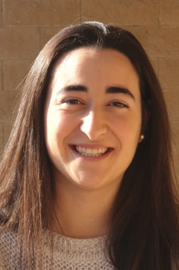

Anna Pérez i Ràfols
Early-stage researcher, Project 7
Anna Pérez i Ràfols was born in Barcelona, one of the most well-known cities of Spain, in 1996. She studied Pharmacy at the University of Barcelona (UB), where she collaborated with two departments during her degree. First, she joined the Organic Chemistry group for a semester in order to study the synthesis of ionic liquids addressed to pharmaceutical applications as part of a first research optional subject. Afterwards, as part of her final degree project, she collaborated with the Biopharmacy and Pharmacokinetics department at the University in order to study the dissolution rate of nicotine transdermal patches at extreme conditions.
Project: Analysing the dynamics of RRMs via structural biology (NMR) and biophysical techniques
Supervisors: Dr. Tommaso Martelli and Prof. Marco Fragai
Email: rafols@giottobiotech.com
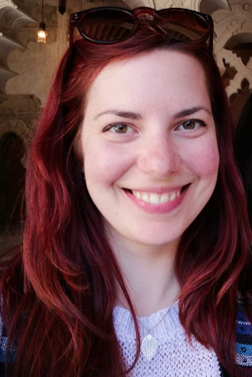
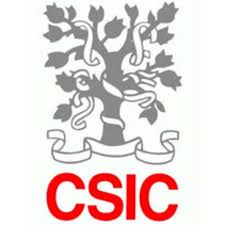
Roswitha Dolcemascolo
Early-stage researcher, Project 8
Dynamic and enthusiastic young researcher, Roswitha Dolcemascolo was born in Palermo (Italy) in 1992. Her passion for research developed at University of Palermo where she obtained a BSc degree in Biotechnology in March 2016. She pursued her Master’s at the same University, obtaining the MSc degree in Biotechnology for Industry and Scientific Research in March 2019 with maximum score (110 with praise). During her second year of Master’s, she did a ten-months research internship at the Molecular Biology laboratory at the HES-SO Valais Wallis Institute of Sion (Switzerland). Recently, she participated in the Erasmus+ mobility for traineeships programme and she expanded her expertise in Microbiology working at the IATA-CSIC Institute of Valencia (Spain) for three months (March-June 2019).
In addition to science, she is interested in liberal arts. She likes learning new languages, travelling and knowing new people and cultures.
Project: Integrating RRMs in prokaryotes to create new pathways in synthetic biology
Supervisors: Dr. Guillermo Rodrigo and Prof. Carmelo López Del Rincón
Email: rosdol@doctor.upv.es
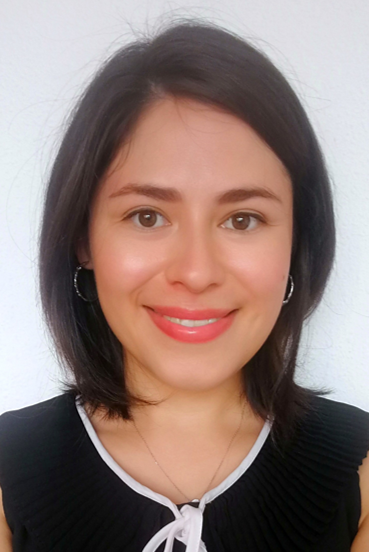

Rosa Anahí Higuera
Early-stage researcher, Project 9
Anahí obtained her MSc in Nanoscience and Nanotechnology, specialization in Bio-Nanotechnology, from the Catholic University of Leuven in Belgium and University Grenoble Alpes in France. Throughout her career, she has participated in numerous congresses and projects related to biosensors for the detection of analytes of interest in medicine and environment.
Besides nanotechnology, her interests cover entrepreneurship and technology transfer. In this sense, Anahí has participated in workshops such as the International Summer School on TechTransfer in Life Sciences in Dresden (Germany), and the Summer Startup School of the International Business Centre of Catalunya (Spain).
Her passion for technology transfer took her to Barcelona (Spain), where she worked at the Institute of Photonic Sciences (ICFO). At ICFO, she was part of a project aimed at developing a rapid diagnostic platform in the format of a lab-on-a-chip, which led to the creation of the startup Droplite Technologies S.L. At Droplite, Anahí led the developments in immunochemistry and nanotechnology.
Project: Creating biochips to study RRM/RNA interactions
Supervisors: Dr. Ulrich Rant and Prof. Dr. Martin Zacharias
Email: Higuera@dynamic-biosensors.com
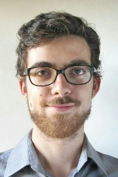
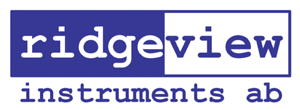
Guillermo Pérez Ropero
Early-stage researcher, Project 10
Guillermo Pérez Ropero was born in Soria (Spain) in 1993. He studied Pharmacy at Universidad Complutense de Madrid (2011-2016). During his degree he carried out reserach in Neuroscience at Instituto Cajal-CSIC (Neurosteroids Laboratory) with a focus on sexual differences in neuronal development. After finishing his degree, he did an internship at Eli Lilly in Alcobendas (Madrid), where he worked on the characterization of new drugs (mainly in the field of Oncology) as part of the Quantitative Biology team. In 2018 he spent a year in Germany as a drug discovery scientist in the Diabetes Therapeutic Area of Sanofi (Insulin Biology Cluster, Frankfurt am Main), focusing on mitochondrial metabolism and the development of new insulins.
Project: Deploying RRMs for in-cell analytics
Supervisors: Dr. Jos Buijs and Prof. Helena Danielson
Email: guillermo.perez@ridgeview.eu
Former ESRs


Stefano Mocci
Early-stage researcher, Project 5
Stefano Mocci is a former PhD student in Structural Biology. He obtained his BS in Biological Science at the University of Cagliari and his MS in Molecular Genetics at Sapienza University. During his Master’s studies, he completed one semester at the University of Barcelona in the Erasmus program. Since the beginning of his master’s degree, he has been interested in exploring the structural biology of proteins. As part of his Master’s thesis research, he carried out structural, functional, and inhibitory studies of Trypanothione reductase, an essential enzyme for kinetoplastids parasites, by use of X-ray crystallography.
His main research interest focuses on the modulation of RNA binding protein by designing novel RRM proteins and developing small molecules. Stefano wishes to characterize and understand how these proteins interact with RNA using a range of biophysical and structural biology techniques.
Stefano left RNAct on 30th September 2020.
Project: Calculating RRM structures, and helping to design new RRMs in conjunction with computational and experimental ESRs in RNAct
